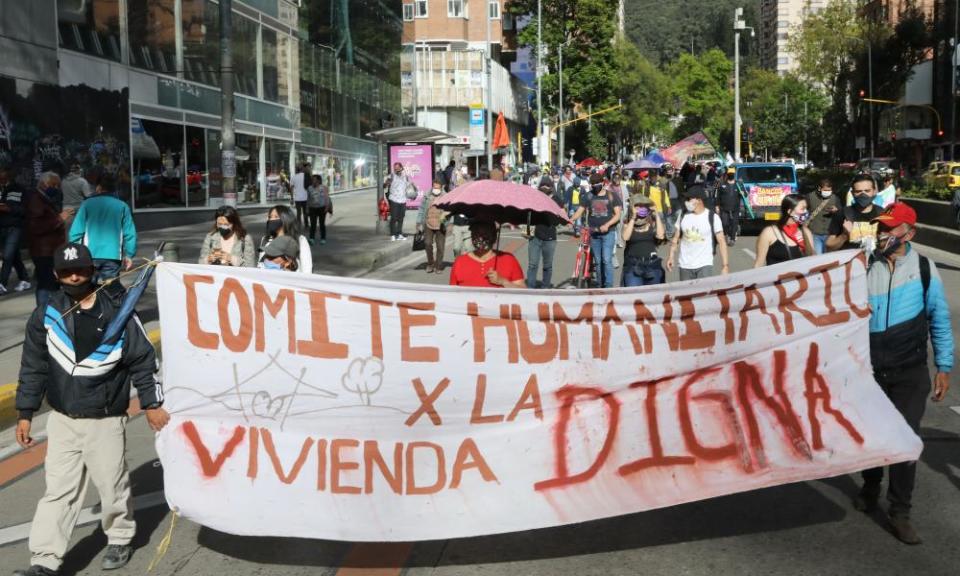'We're being massacred': Colombia accused of failing to stop murders of activists

Activists in Colombia have warned that they continue to face extermination despite the coronavirus pandemic, as Amnesty International accused the country’s government of doing little to protect them.
At least 223 social leaders – community activists defending human, environmental, and land rights – have been murdered this year, according to local watchdog Indepaz.
“We are being massacred, drop by drop,” said Danelly Estupiñán, who leads the Black Community’s Process (or PCN), an activist group dedicated to Afro-Colombian rights, in Buenaventura, an Afro-Colombian port city on the Pacific coast. Estupiñán has received countless death threats, been followed by suspicious men, and had her house broken into in recent months.
Related: Peace is war as armed groups roil Colombia's lawless border region
A new Amnesty International report entitled “Why Do They Want To Kill Us?” and published on Thursday, identified four areas of the country as particularly dangerous for activists: Buenaventura; the Amazonian province of Putumayo; the war-torn Catatumbo region on the Venezuelan border; and the Kubeo-Sikuani indigenous settlement in the eastern planes.
“For years, Colombia has been one of the world’s most dangerous countries for people who are defending human rights, territory, and natural resources,” Erika Guevara-Rosas, Americas director at Amnesty, said in a statement to media on Thursday.
“Defenders will continue to die until the government effectively addresses structural issues such as the deep inequality and marginalization suffered by communities, ownership and control of the land, substitution of illicit crops, and justice,” Guevara-Rosas went on to say.
Estupiñán said that the coronavirus has only added to the violence, with armed groups and drug gangs fighting for control of the region surrounding the Colombian pacific coast’s largest port, while subjecting much of the civilian population to violently enforced lockdowns.
“The lockdown did nothing to slow down the threats we face,” the 40-year-old activist said. “Each attack is emotional and psychological; meaning that you and your family and colleague can’t sleep, relax, enjoy life. It’s agony.”
Human rights defenders across the country told Amnesty International’s researchers that the Covid-19 outbreak has also prompted authorities to reduce the protection arrangements – including state-provided bodyguards and armoured vehicles.
A historic 2016 peace deal between the Colombian government and what was then Latin America’s largest rebel group, the Revolutionary Armed Forces of Colombia (or Farc), was supposed to end decades of the bloodshed.
But though the accord formally ended five decades of civil war that killed 260,000 and displaced over 7 million, only a small fraction of its provisions have been implemented, while violence continues to rattle the countryside as Farc dissidents, other rebel militias, and cartels jostle for control.
More 66 massacres – which local authorities count as single acts of killing that leave three or more dead – have been committed this year, according to Indepaz, with 263 people killed.
Colombia’s rightwing government, led by president Iván Duque – a sceptic of the peace deal signed by his predecessor – has come under fire for not doing enough to quell the bloodshed.
“We only see the national government after months of pressure, which takes up time we need to spend defending our communities,” Estupiñán said. “It’s no secret that peace never came to Colombia.”

 Yahoo Finance
Yahoo Finance 